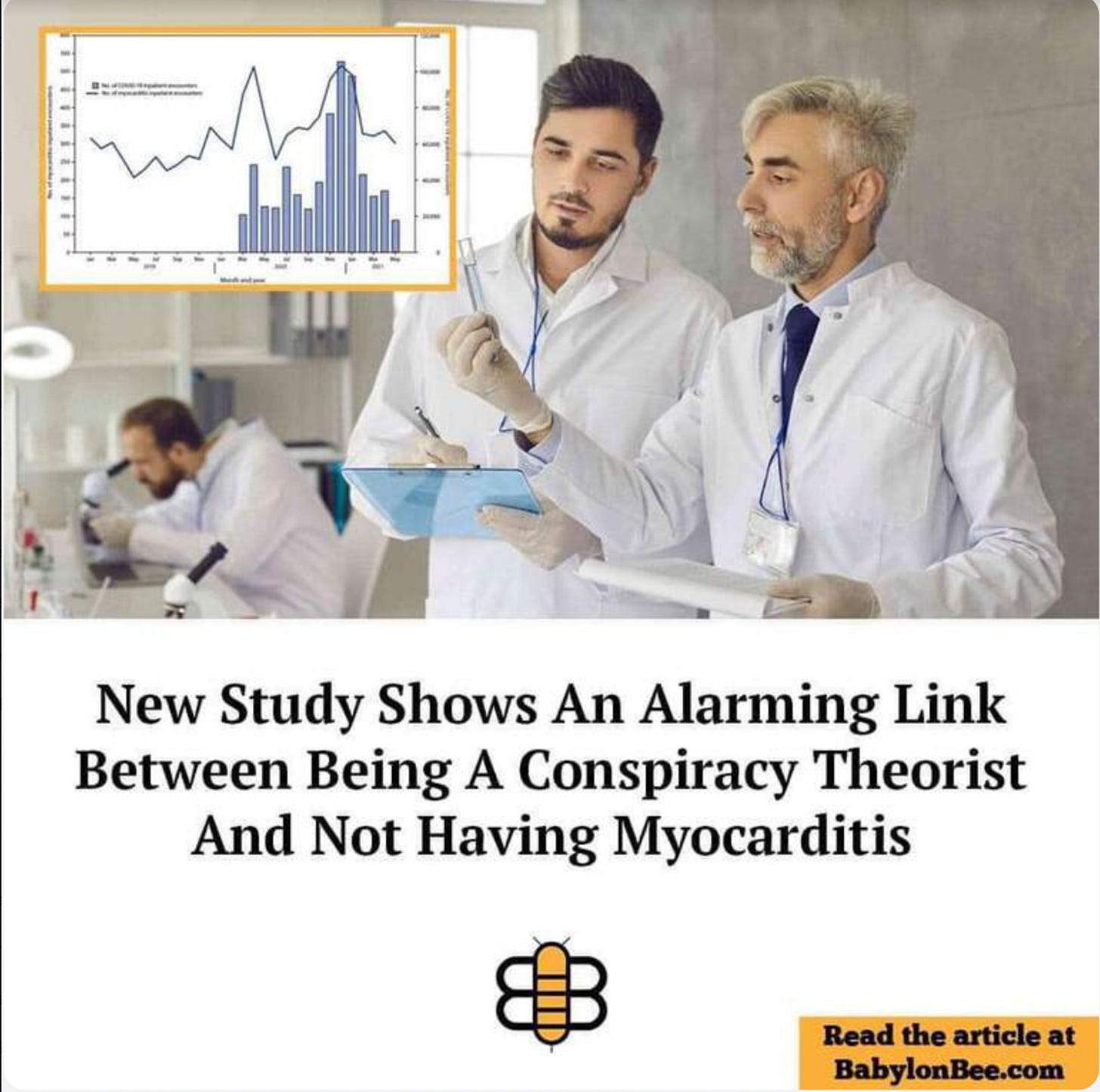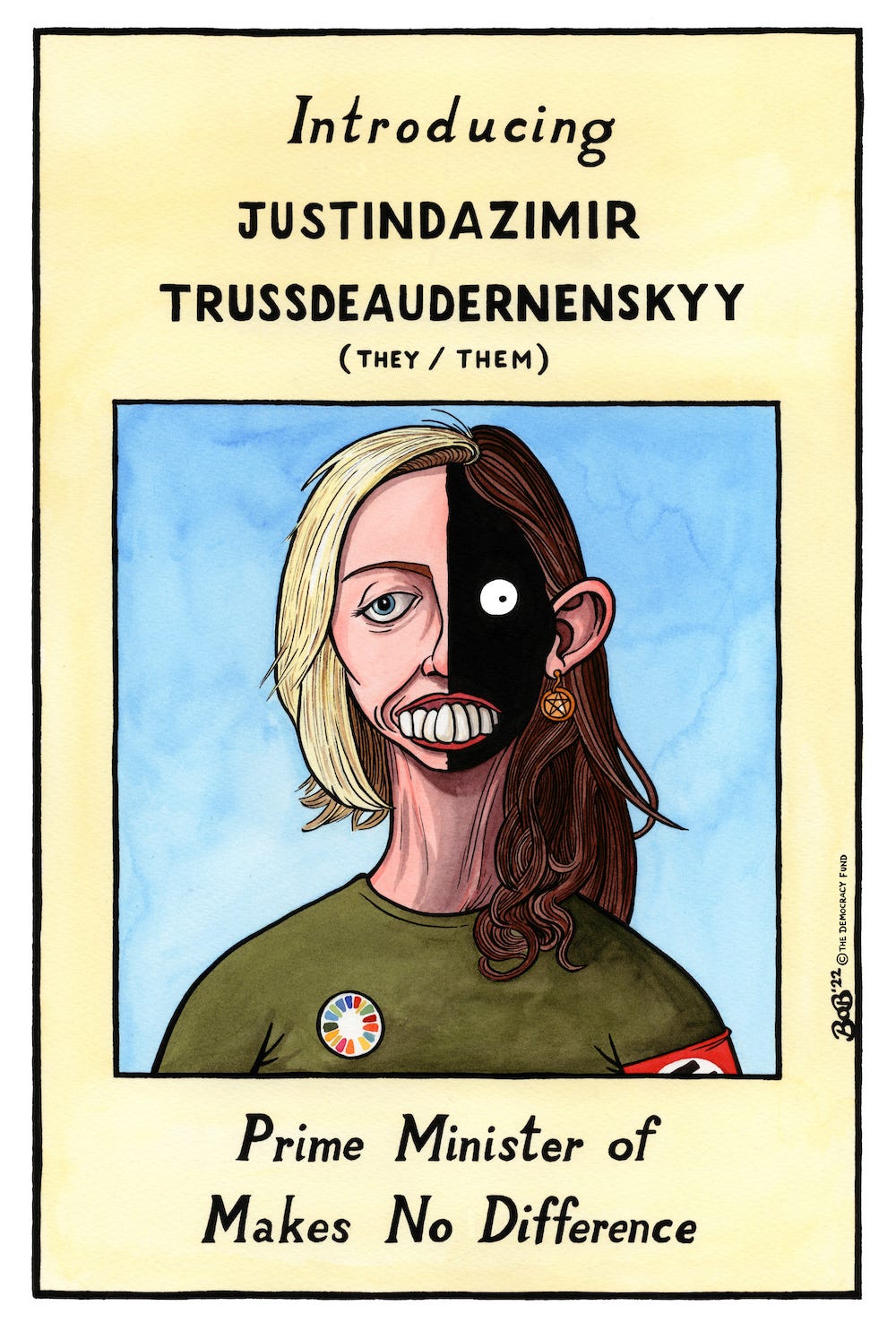Critical Thought Is Not Dead
Perhaps not widely prevalent, but more importantly, not extinguished
The wooden stakes and silver bullets required to address the menace of our time, critical thought, experience and preference. How to dodge being conned and compliant through manufactured fear and coercion, or face being cancelled or cope with rank media propelled discrimination.
A recent article published in the International Journal of Vaccine Theory, Practice And Research highlighted that the existence and survival of critical thought is not dead.
One of the key findings of the study (a self-reported data collection from Sept 2021 ~ Feb 2022, provided by a self-selecting uninjected international COVID-19 population of 18,497) arose from the several reasons given for refusal of the injection aside from the obvious, that the alleged condition did not merit the hyperbolic fear it was intentionally accorded, which raised rampant justifiable speculation regarding political and corporate motives and integrity. There was no ethical justification for the frenzied, media fueled assault of politicised experimental synthetic gene and lipid nanoparticle injections. Interestingly, older individuals in this cohort were those least affected, not what was typically observed in the wider population, where age and serious co-morbidities were associated with poorer outcome.
Incidence Within This Cohort
During the survey period, the greatest incidence of COVID-19 disease was reported in the 50-69y range, peaking at 12.3%, in January 2022. Persons at 70y and above were least affected (1.3%), with 10.7% and 3.8% in the 20 to 49y band, and in the 1 to 19y group, respectively. Most rated their symptoms as “mild” (14.4%), with 2% reporting “severe” disease. Fatigue, cough, muscle/body aches, and fever were the four most common. Just 0.4% of the cohort reported hospitalization (as in- or out-patients).
Reporting Distribution
The largest single proportion of this cohort arose from Australia and New Zealand (27.2%), where political mandated injections were heavily imposed. Large proportions were also seen from North America (25%), and Northern Europe (26.1%).
Argument around the ethics of mandated injections have been deeply flawed as they are based on a logical fallacy of false equivalence. In reality, the novel experimental synthetic gene therapy and lipid nanoparticle injections are simply not comparable to extant ‘vaccinations’ at or on any level.
Findings
57% of respondents were female and 43% male. The greatest numbers of respondents were in the 50 to 69 age range, and accordingly would generally be regarded by health authorities as highly susceptible to COVID-19 disease.
Reasons For Rejecting Experimental Injection
When reviewing the reasons for not being injected (above) we can assemble them loosely and arguably into arbitrary groups of ‘preference’, ‘analysis’ and ‘experience’. I do not intend to weight any of these choices. They are all individual decisions requiring of respect and encompassed by established ethical norms (that were dismissed) and a requirement for fully informed consent (well identified as impossible to provide for an experimental intervention and not provided in the Pfizer trial to participants), to wit:
In all, the evidence from the Pfizer, Moderna and Johnson & Johnson protocols for their COVID‐19 vaccine trials and the sample consent forms, when contrasted with the evidence for antibody‐dependent enhancement of disease presented by this report and widely available to any skilled practitioner in the field, establishes that patient comprehension of the specific risk that receiving the COVID‐19 vaccine could convert a subject from someone who experiences mild disease to someone who experiences severe disease, lasting morbidity or even death is unlikely to be achieved by the informed consent procedures planned for these clinical trials. (Cardozo T, and Veazey R, 2020)
Categorical Findings
Experience: Medical complications: 4.39%; Previous vaccine injuries: 2.78%
Total: 7.17%
Preference: For natural medicine interventions: 16.78% Fear of short term adverse reactions: 11.48%
Total: 28.26%
Analysis: Distrust of pharmaceutical intervention: 16.43% / Distrust of government information: 16.41%; Poor / limited trail study data: 16.33%; Fear of long term adverse reactions: 15.42%
Total: 64.59%
All of the above made wise decisions for one or more individual compelling reasons.
However, arguably 65% would have employed critical reasoning to either capture actual data or develop a sense-of-things from weighing the evidence, seeing a satisfying and reassuring sufficiency of evidence, weighing-up the known outcomes, perceiving unknown outcomes and balancing some or all of these against the trumpeted orchestrated fear-mongering, which one has to conclude will have been largely disregarded.
Post Script
“You can fool some of the people all of the time, and all of the people some of the time, but you can not fool all of the people all of the time.”








